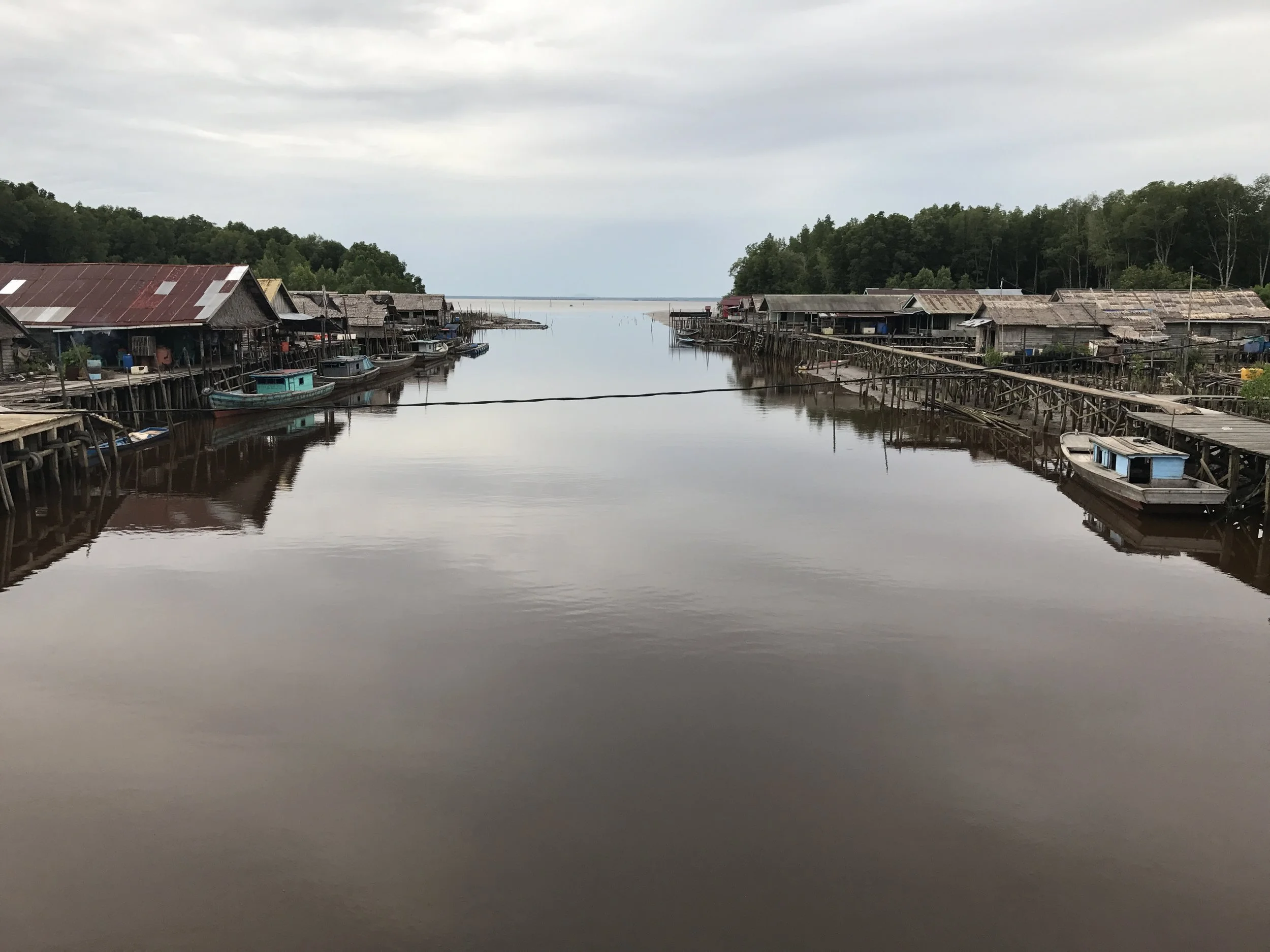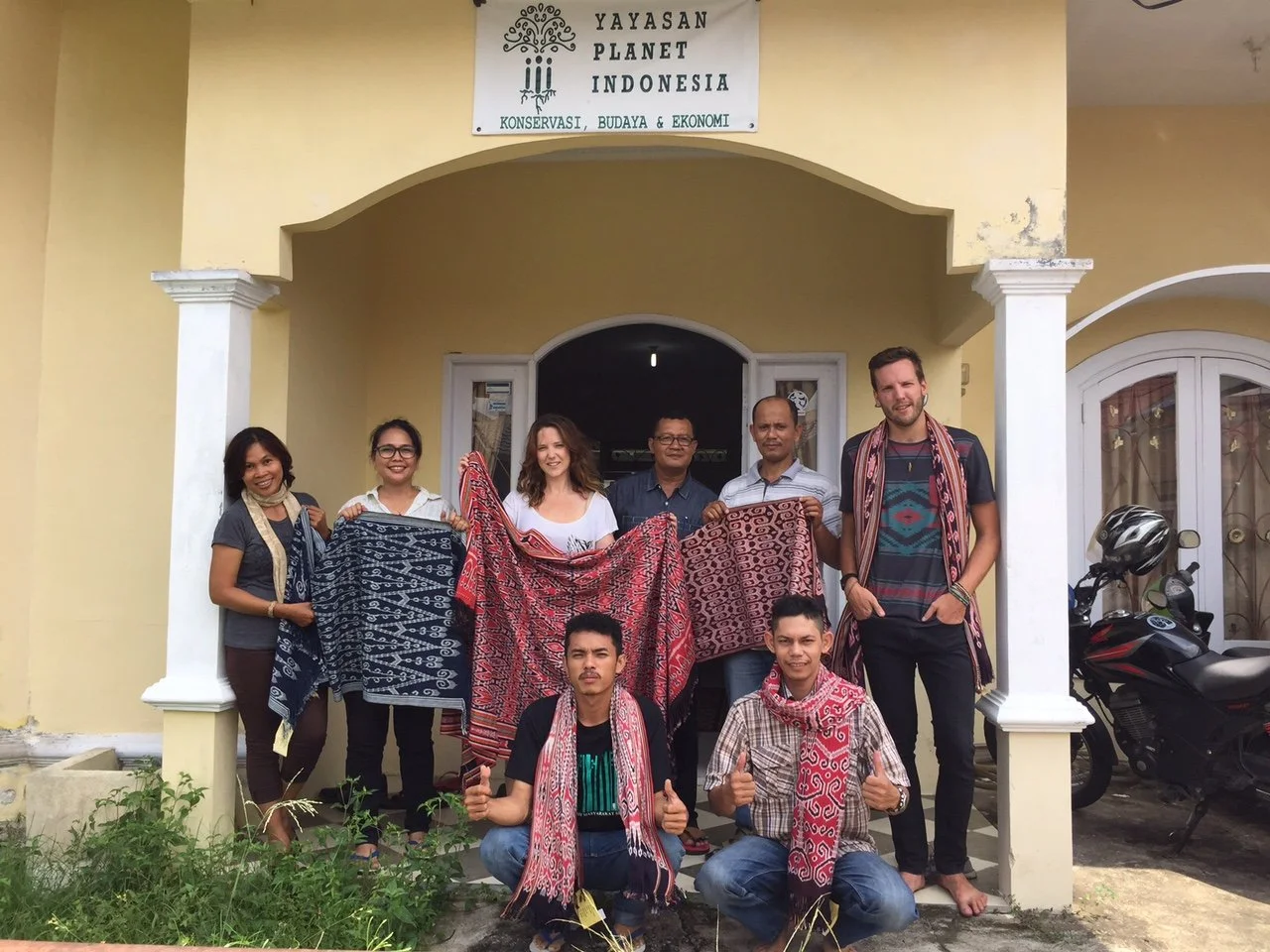Before we pull up our sleeves for the new decade, we’re taking the time to reflect on what progress 2019 is bringing.
Read MoreLast week our temporary closure systems opened! Join our crab fishers on the rivers to see how we fish and what we get up to on opening week. Listen to their testimonials.
Read MoreEverything you need to know about our community development approach to environmental conservation is in our Gunung Nuit Report, but for organisations wanting to implement or learn from our model for practical purposes we welcome them to engage in knowledge exchanges. Most recently we welcomed Forkani (assisted by Blue Ventures) to learn from our models in our coastal village partners of Sungai Nibung, and Mengkalang Jambu. We shared with them all the ingredients that make our model work and they got to speak to community stakeholders at every level to get multiple perspectives. We were just passing on the good grace offered to us by other organisation partners like Blue Ventures who helped us a lot last year. Read this blogpost to learn what's involved and how everyone benefits.
Read MoreOur agriculture program has bee-n with us from the bee-ginning but last year we developed it further. Now villagers can benefit from a sustainable agriculture course consisting of four levels to ensure villagers can smoothly transition and most importantly gain the expertise to maintain their sustainable agriculture systems. Read more to reveal an exciting new update, we’ve hidden some clues in this description - see if you can guess what it’s about.
Read MoreIf we want any hope for the future, gender equality must be achieved. In this blogpost we go through the reasons why and how we empower women and girls so that they have the freedom to pursue the life they want. Our Health and Literacy Coordinators, as pictured in this title photo, give their first hand experience in dealing with gender equality issues in rural communities and what motivates them to continue the fight.
Read MoreRecently we took a field trip to Seruat dua accompanying Blue Communities PhD candidate Ana from the UK who is studying the impact of our Population Health Environment (PHE) integrated approach. In this blogpost we explain the philosophies and methodology behind our health services in rural communities that have limited access to health care. Read more to understand how we support communities in achieving the human right to health.
Read MoreTo assess whether we were preventing biodiversity loss was proving to be an immense challenge because most of the currently existing methods of surveying population densities was extremely inefficient. We’ll be implementing the PLEO method this year to combat the problems we face with transect surveys. Read this blogpost to get the full lowdown on the why and how.
Read MoreEvery year, our achievements get larger and our aims get more ambitious. This year, one of our resolutions was to try and engage our international support base more with the grassroots work we do. We want to take you on the journey and show you what happens on the ground. Take a look at this blog post to see what some of the biggest adventures we’ll be undertaking so we can track our progress together.
Read More2018 was a massive year for us. You might remember some of the big exciting moments like when Adam won his Future for Nature award or when our Helmeted Hornbill chick finally fledged but underlying all that is a lot of consistent hard work that also manifest more quiet and ongoing (but equally important) achievements. Take a peep at this blogpost to see the milestones we climbed up to in 2018 before we fly off to even higher heights in 2019.
Read MoreWe’re launching a rifle and chainsaw buyback program inspired by the success of similar initiatives that have been proven effective in ... This blogpost starts by explaining the problems plaguing local communities. Skip to the middle of the article if you want to read how the rifle and chainsaw program will fit into our overall mission of empowering local communities, for example injecting some much needed financial resources.
Read MoreLast time we shared how we build the foundations for our wildlife and environment conservation work, this time we’ll show you the exciting bits of what happens after. Read to join our Biodiversity Team on their latest field trip so you can see for yourself what working in the Borneo Rainforest is like and what it takes to protect an endangered species. Continue reading and we’ll explain some of the politics that make mass environmental destruction possible and what we’re doing to unravel the decades long legacies of poor policy to help the people of Indonesia re-write a brighter, more sustainable future.
Read MoreHope is essential in conservation and nothing signifies hope more than the arrival of the newborn of a critically endangered species. It has been an 8 month journey to ensure the family of Helmeted Hornbill’s safety and with this chapter coming to an end we have some incredible stories to tell. But behind the excitement and good news is a lot of meetings, paperwork and strategising. This post takes a look at all the foundations we built to give the baby and its species a chance at life.
Read MoreEarlier this year we received the Darwin grant from the UK government to expand our Coastal Programs. We’re already seeing enthusiastic responses from the coastal communities who are working with us. For the project, we have partnered with Oceanwise to ensure scientific and objective measurement of the impact of our programs in the area. To take an in-depth look at what we’re doing here, read on.
Read MorePlanet Indonesia has been named a winner of the 2017 UNDP’s Equator Initiative. 806 nominees from over 120 countries just 15 organizations have been awarded the prestigious Equator Initiative for advancing nature-based local solutions for sustainable development.
Read MorePlanet Indonesia has pioneered new innovations in community-based conservation, and this program takes it even a step further. This project focuses in the coastal District of Kubu Raya in West Borneo. This district has the highest rate of illiteracy in Indonesia as the mosaic of rivers, canals, and oceans make it difficult for transportation and access to education. Planet Indonesia in 2017, partnered with another local organization, will provide literacy training (e.g. reading and writing) to the families of all fishermen that agree to join our program.
Read MorePlanet Indonesia began working with this issue from the first day we opened our doors. True to our model, we focus on-the-ground, working with trappers, traders, and poachers to not only understand the motivations but also to provide incentives and cover the opportunity costs for engaging in new business and adopting sustainable resource management strategies.
Read More


















